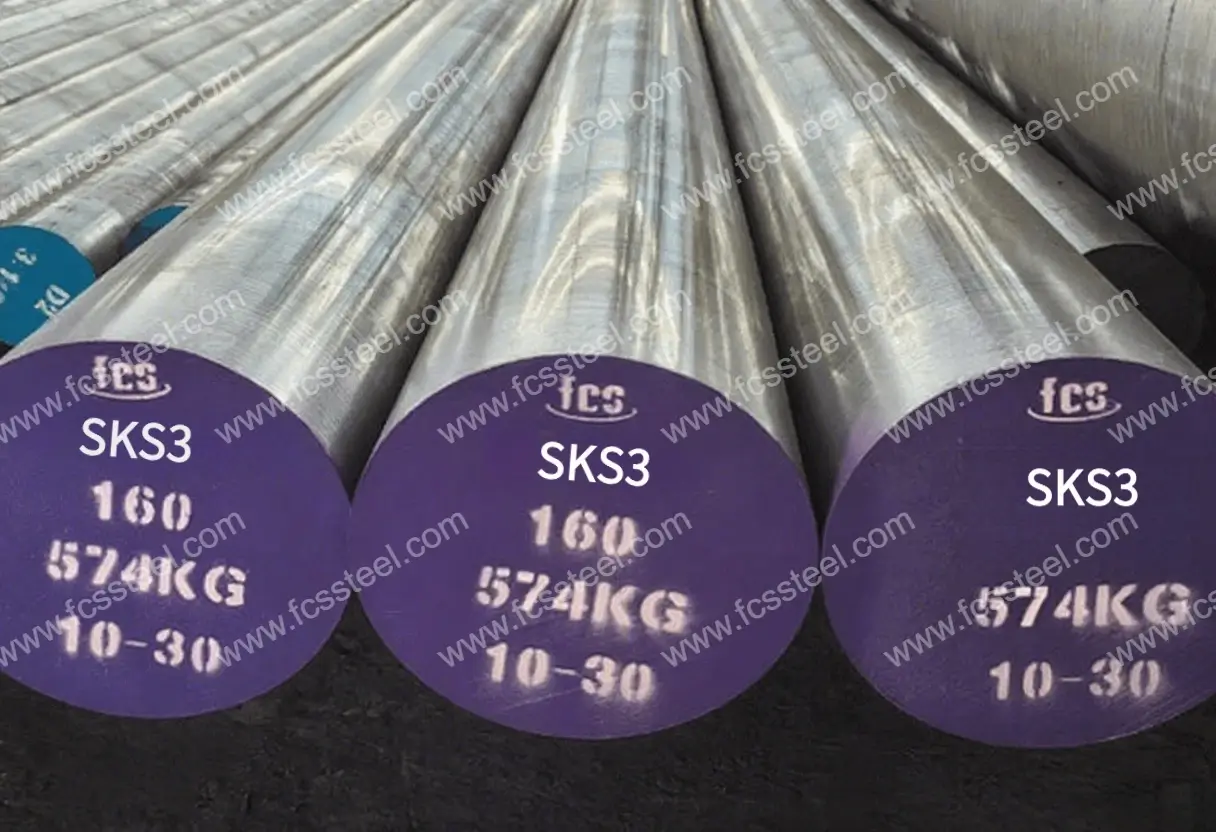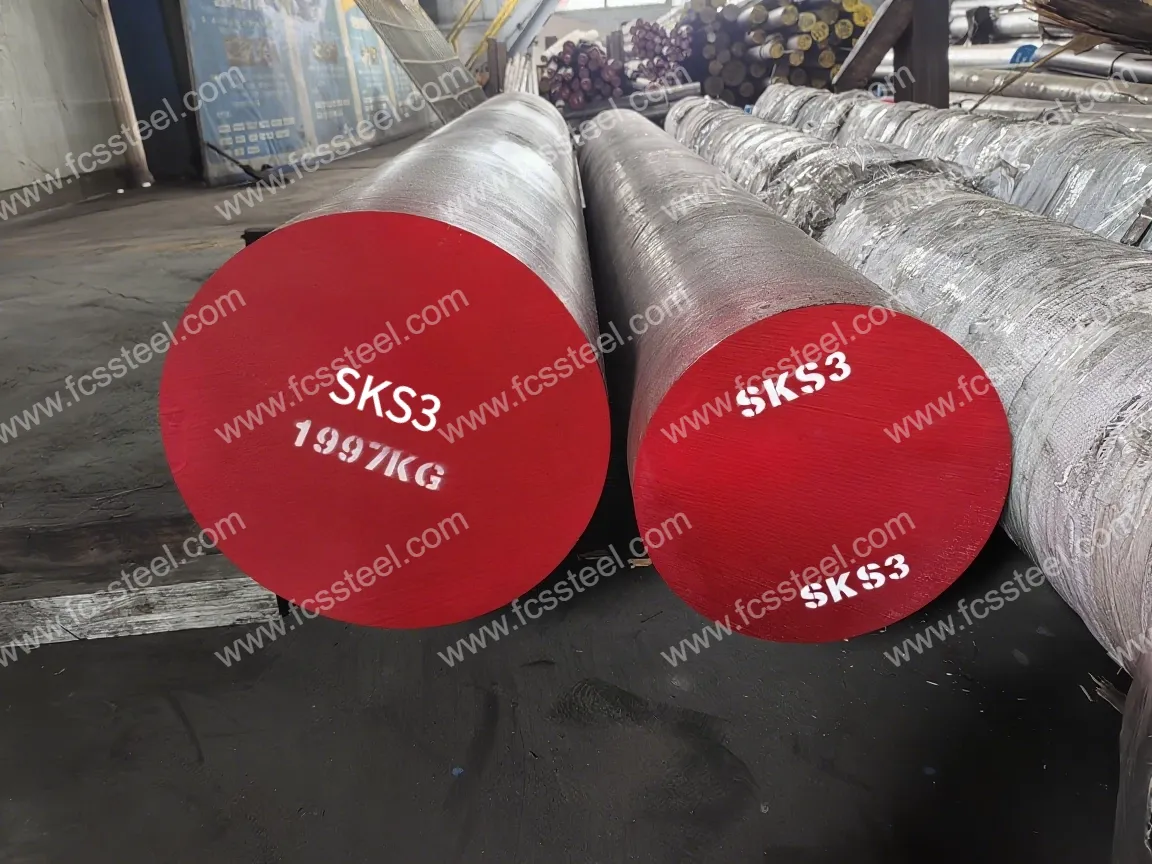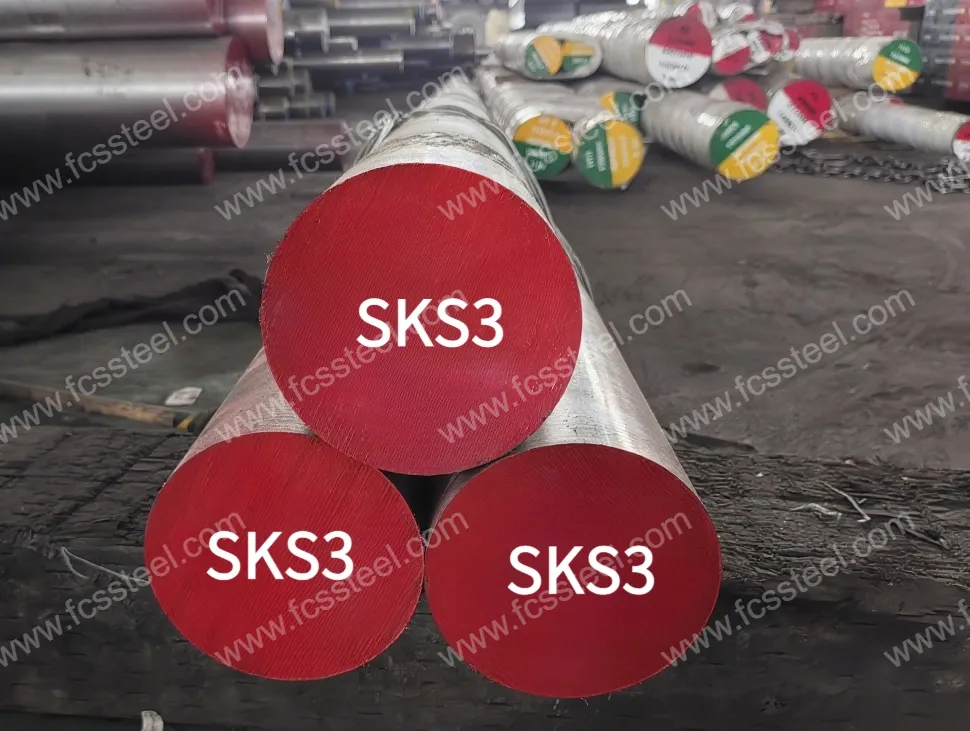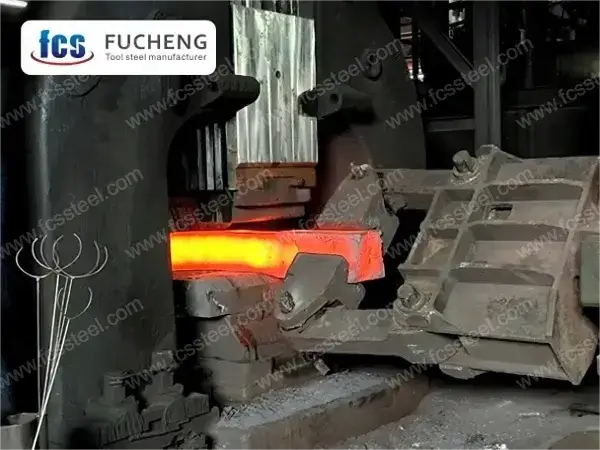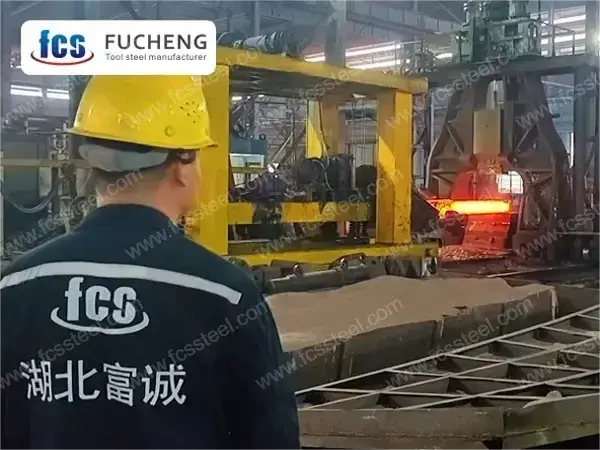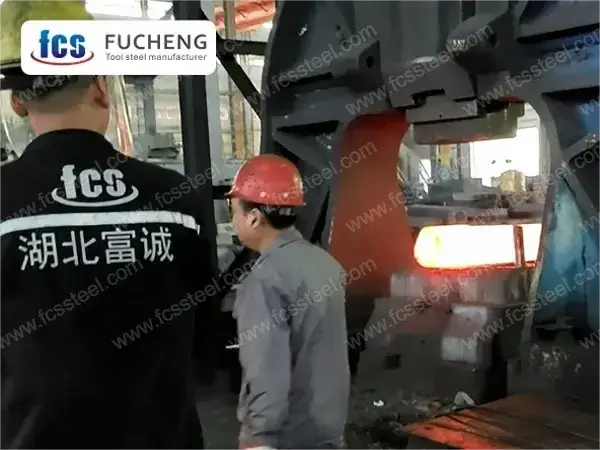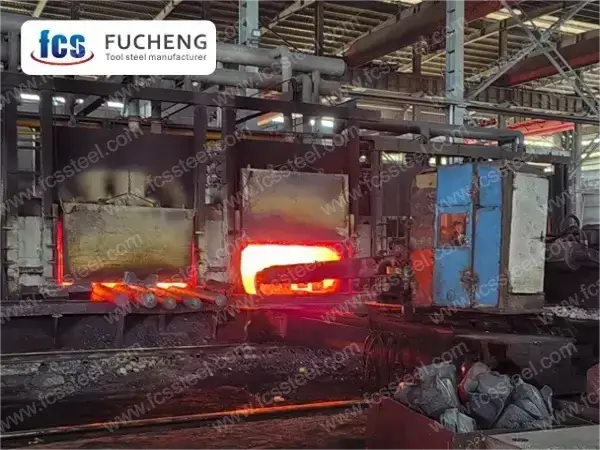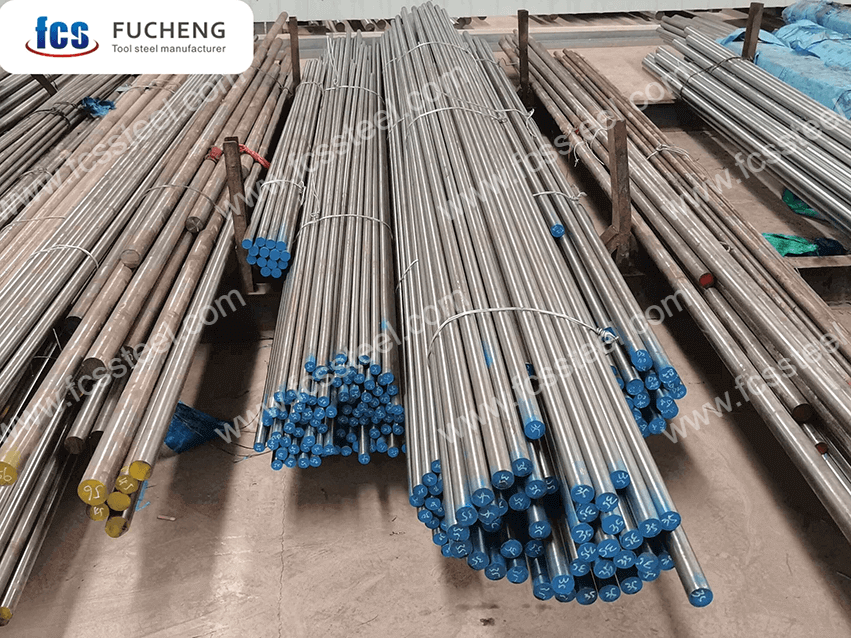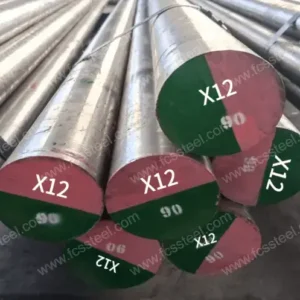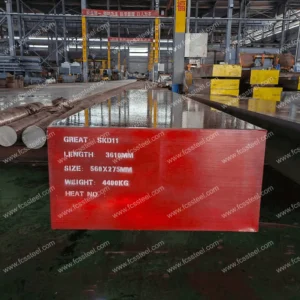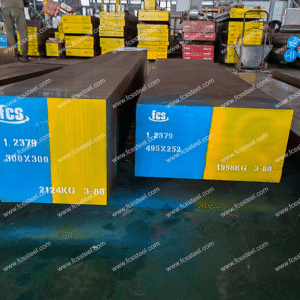SKS3 Tool Steel
SKS3 tool steel solves the problem of premature tool failure in demanding industrial applications. As a premium, high-carbon, oil-hardened, cold work steel, SKS3 offers an optimum balance of wear resistance and toughness, increasing tool life by up to 30 per cent compared to standard carbon steels.
Manufacturers in the metal stamping, plastic forming and precision moulding industries choose SKS3 for its excellent dimensional stability and consistent performance when heat treated. When applied correctly, it directly reduces downtime, lowers maintenance costs and improves production quality.
FCS TOOL STEEL’s factory-direct supply model ensures compliant material composition and controlled processing for reliable performance in critical applications.
SKS3 Tool Steel Product Introduction
SKS3 tool steel is a high carbon, low alloy tool steel according to the Japanese JIS G4404 standard, with carbon, manganese, chromium and tungsten as its main components, supplemented by traces of molybdenum and silicon. The steel is vacuum refined to ensure purity and ball annealed to optimise the organisation (ex-factory hardness of approx. 230 HBS), which significantly improves machinability.
SKS3 takes high hardness (HRC ≥ 60 after quenching) and dimensional stability as its core advantages, and quenching requires a staged preheating (550°C-650°C) followed by heating to 800°C-850°C oil cooling and tempering at 150°C-200°C to stabilise the organisation and reduce deformation. Its high carbon content to support excellent wear resistance, but need to strictly control the heat treatment parameters (such as avoiding overheating) to balance the toughness, to adapt to the needs of precision machining.
SKS3 Tool Steel Types and Options

The table below shows the size range, surface condition and tolerance details for SKS3 Mould Steel:
SKS3 Tool Steel Customized Options
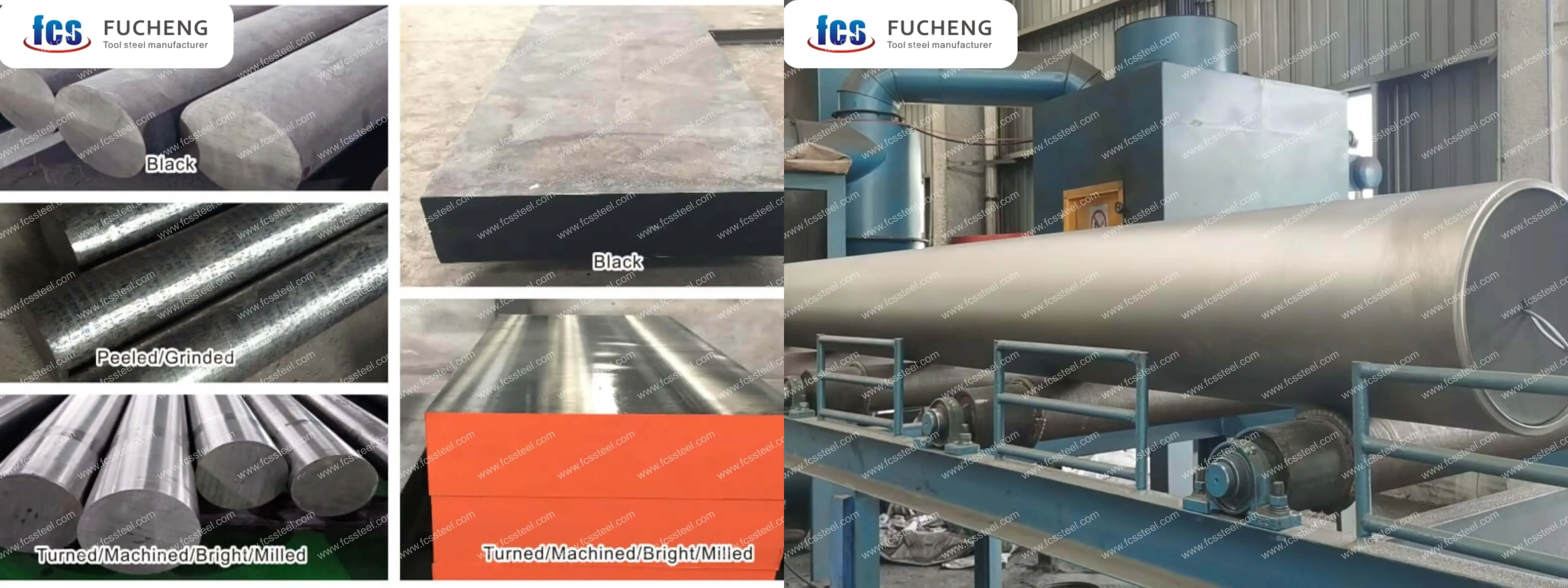
- Customized chemical composition: GB, DIN, ASTM, JIS and other standard grades can be produced. Chemical composition can be customized individually.
- Customized specifications: round steel (diameter), plate (thickness, width) can be customized production.
- Specialized packaging for long term storage or extreme transportation conditions: includes spraying black paint all around, wrapping plastic film, spraying anti-rust oil, and shipping in wooden crates.
- Customized production based on samples or technical agreements.
- SKS3 Tool Steel Electroslag Remelting (ESR): premium option with higher purity and isotropic properties for critical applications.
SKS3 Tool Steel Chemical Composition
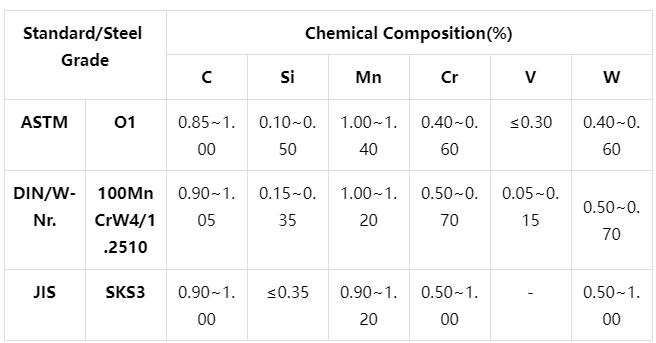
SKS3 Tool Steel Heat Treatment Process
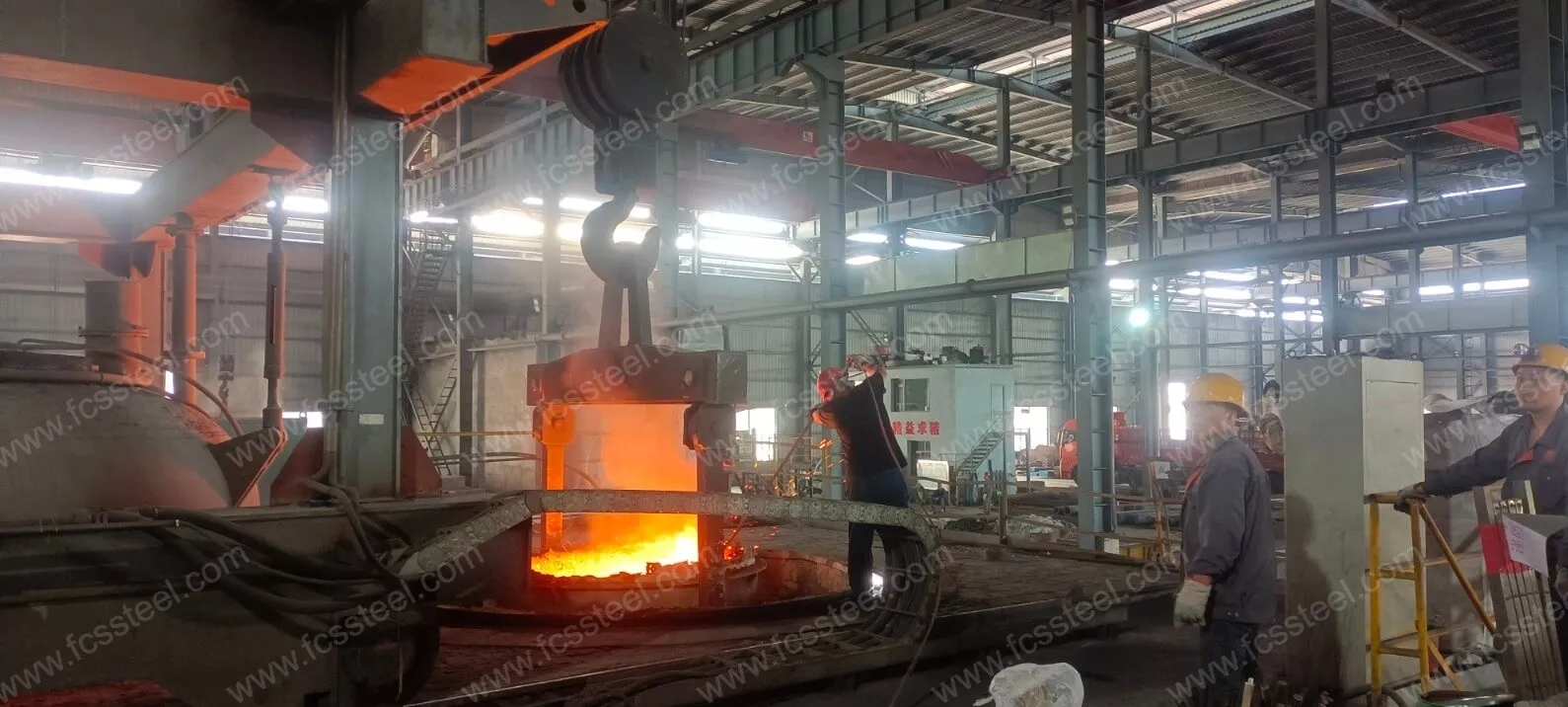
1.Annealing
2.Quenching
3.Tempering
4.Precautions
Heating process should control the rate of heating to avoid too rapid a rise in temperature leading to workpiece surface oxidation and decarburization. Protective atmosphere heating can be used or placed in the furnace charcoal and other anti-decarburization agent.
When quenching and cooling, choose the appropriate cooling medium and cooling method according to the shape and size of the workpiece to ensure the quenching effect while reducing the risk of deformation and cracking.
SKS3 Tool Steel Quality Inspection
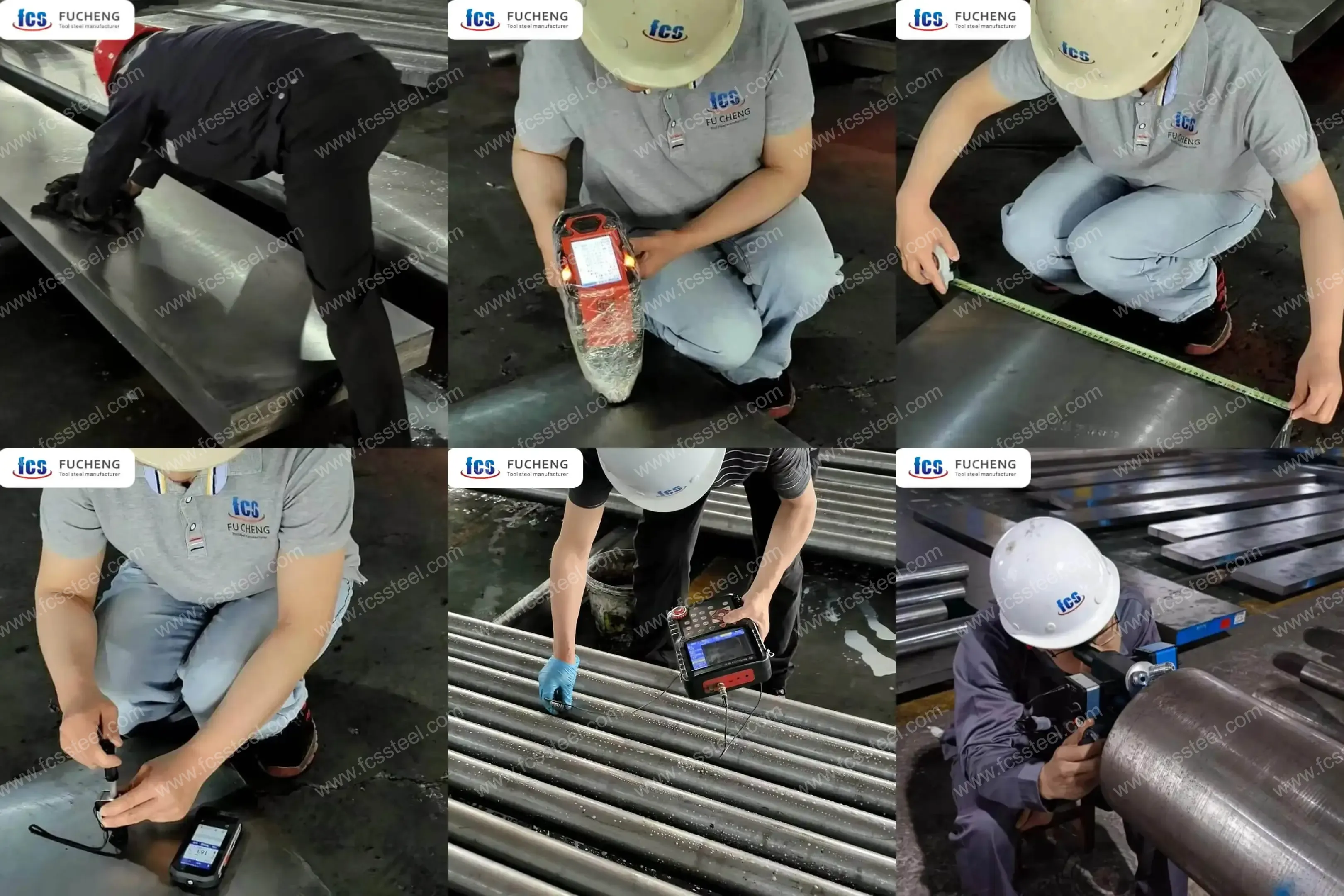
1.Surface Condition Inspection
2.Chemical Composition Testing
3.Dimension and Tolerance Inspection
4.Hardness test
5.Ultrasonic Testing
6.Microstructure Inspection
(1) Metallographic Analysis
FCS factory will use metallographic analysis instrument to detect the microstructure state after heat treatment, including carbide distribution, martensite morphology, residual austenite content, etc.
(2) Grain size rating
SKS3 Tool Steel Technical Specifications
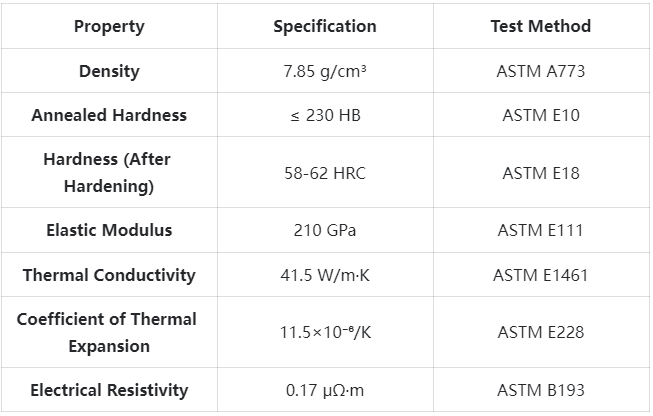
SKS3 Tool Steel Product Applications
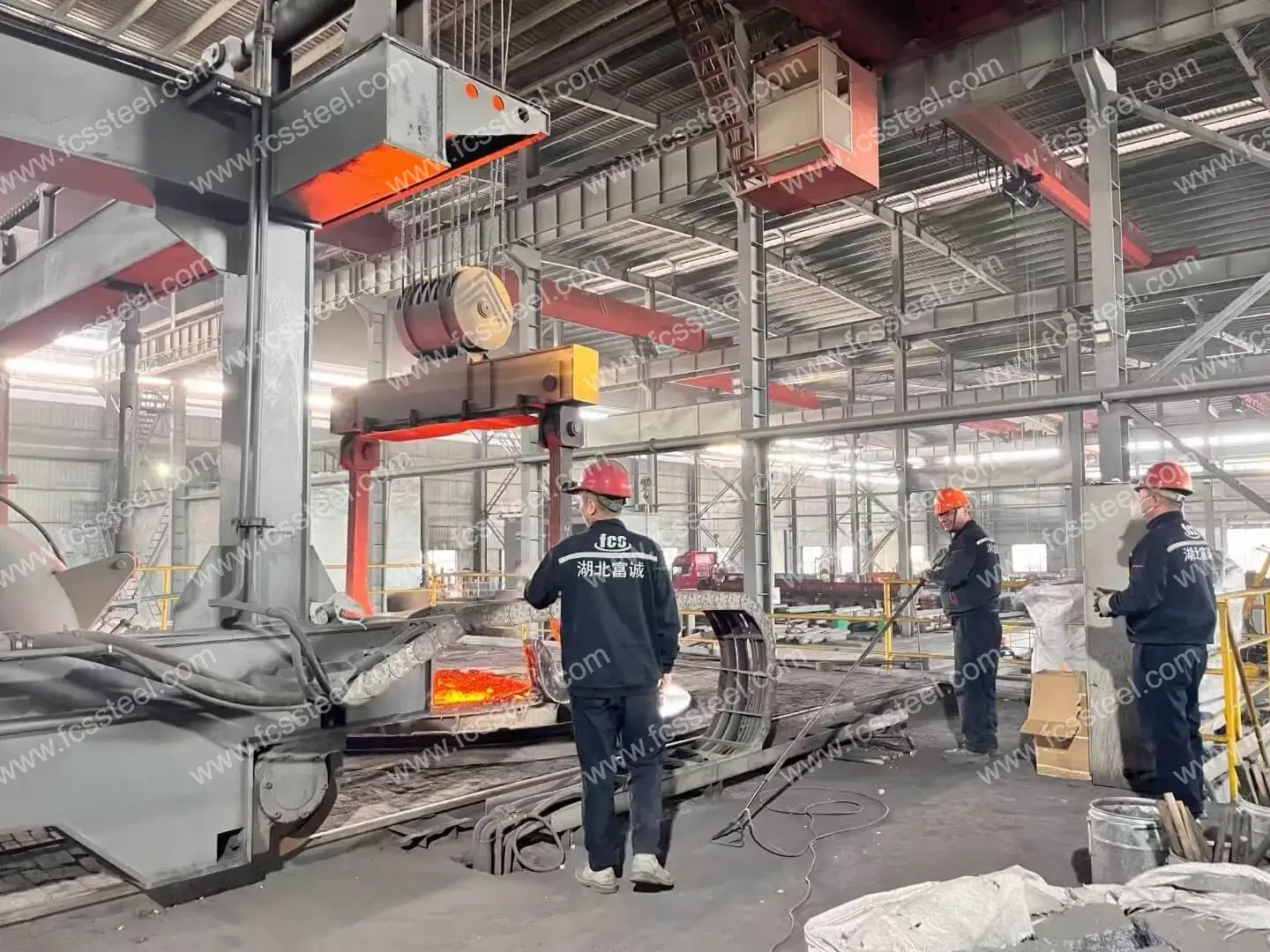
Main application scenarios
Stamping and drop moulds
SKS3 excels in high-volume precision metal stamping (dimensional accuracy and wear resistance are key). Feedback from customers in the automotive parts industry: switching to SKS3 with proper heat treatment has increased tool life by 40%. The dimensional stability of the heat treatment ensures consistent part production and minimal mould maintenance.
Plastic injection moulded components
For moulding plastics containing abrasive compounds or glass fibres, SKS3 combines surface wear resistance with polishability. High hardness (up to 62 HRC) + excellent thermal conductivity supports consistent cycle times and low maintenance at high throughput.
Shear blades and industrial knives
SKS3 is the best performer in the twin critical scenarios of edge retention and toughness. Industrial cutting involving sheet metal, rubber, plastics and composites benefit from its balanced performance, with sharper cuts and less blade changes.
Industry-specific applications
- Automotive: body panels and precision component stamping dies.
- Electronics: leadframe stamping tools and connector moulding dies.
- Aerospace: precision gauging and moulding dies for sheet metal components.
- Medical: surgical instrument components requiring precise dimensions.
- Consumer Goods: long lead time production tools for metal/plastic components.
SKS3 Tool Steel Competitive Advantage Comparison
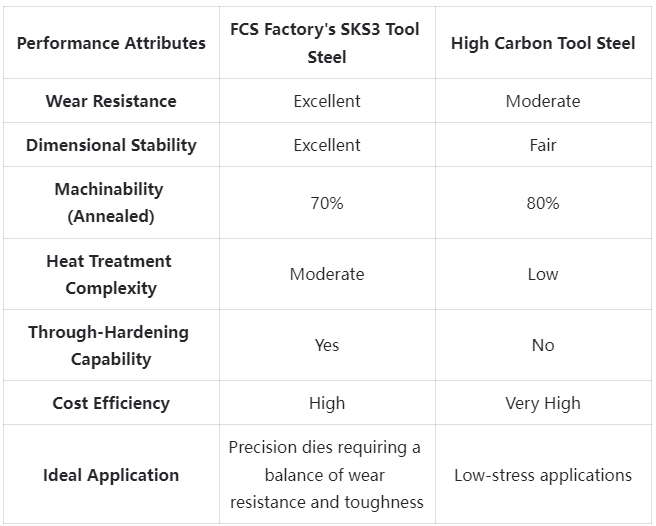
SKS3 Tool Steel Customer Success Stories
SKS3 Tool Steel Pricing Structure Information
SKS3 Tool Steel Frequently Asked Questions
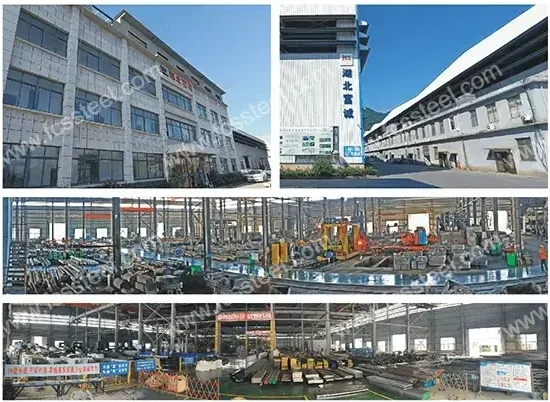
SKS3 vs D2 for stamping applications?
SKS3 toughness and machinability is better than D2, D2 wear resistance is better. SKS3 is suitable for wear + impact resistance scenarios, D2 is more suitable for high abrasion (brittle insensitive) scenarios.Is SKS3 suitable for vacuum heat treatment?
Yes, it is! Vacuum heat treating optimises surface quality and reduces decarburisation, but oil quenching is still required and vacuum furnace capability is required.What are the storage precautions for SKS3?
Store in a dry environment with a rust inhibitor; precision ground materials require additional protection against mechanical damage; storage at a constant temperature is optimal (protection against condensation).What are the processing recommendations for SKS3?
In the annealed state, standard tool steel processes (carbide tools, reasonable cooling, medium speeds) can be used; after hardening, grinding, EDM or hard machining is recommended.
Additional information
| Weight | 45 kg |
|---|---|
| Dimensions | 165 × 60 × 25 cm |

